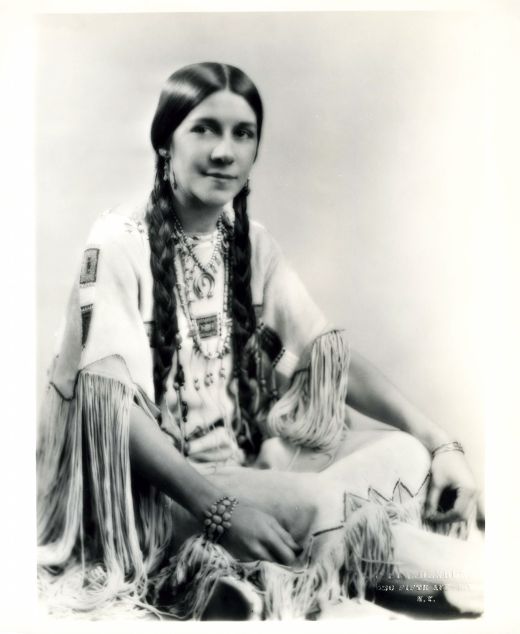Book highlights Ataloa’s rich legacy of helping others

This article appeared in the August 2018 edition of the Chickasaw Times
“Little Song, The Life of Ataloa Stone McLendon” by Tamara Elder, weaves a narrative that illuminates the life and influence of Ataloa, the storied Chickasaw educator, visionary and humanitarian.
Like her famous cousin and friend Te Ata Fisher, Ataloa wanted to share the Native American culture of her ancestors with any who would listen. And listen they did as she traveled around America employing what one critic referred to as her “rich contralto voice” singing “the music of aboriginal America.”
Ms. Elder said finding source material on Ataloa’s life was no easy task. “There wasn’t much information out there,” she said. “There were pieces here and there but for the most part there weren’t any publications on her.”
Most of Ms. Elder’s detective work involved researching publications that reported on Ataloa as she performed at different venues giving talks or singing her music. “She traveled quite a bit, so I would follow the newspaper articles to find out where she was and what she was doing. In that way, I was able to follow Ataloa throughout her life.”
Ms. Elder said the more she learned the more impressed she became, not just with her subject’s humble efforts to share her Native American culture, but with the totality of her life and impact on those with whom she came in contact. “I was amazed at what she had done with her life as well as her influence on others’ lives.”
Ms. Elder said she became interested in Ataloa while working on an earlier book about Creek-Pawnee artist Acee Blue Eagle. “I realized how important she was not only in shaping the course of Acee Blue Eagle’s art career, but setting up the first art department at Bacone College in Muskogee, Oklahoma.
“Her efforts there opened the doors for other artists such as Woody Crumbo, Willard Stone, Solomon McCombs and Dick West. I give her credit for starting the Southeast Bacone style of work, which also led to the Southeast style as well. I consider her to be a pioneer and important figure in the commencement of Native American art education.”
Ms. Elder said Ataloa was reared in an era when public education, especially for women, was a relatively scarce commodity. “She developed a great concern and interest in education for women as well as public outreach and adult education programs,” she said.
Ataloa was born just outside Duncan, Oklahoma, in 1896. Always an eager learner, she continued to pursue her education by attending the University of Redlands where she received a B.A. degree in 1925.
Post graduate work was in New York City at the John D. Rockefeller Institute, Union Theological Seminary and Institute of International Education and the Institute of Musical Art. In 1925, she transferred to Columbia University where she earned a master’s degree in 1927.
Ms. Elder said it was in this same year she turned down an offer to sing with the Metropolitan Opera House in New York City in favor of teaching English at Bacone College.
Teaching turned out to be only part of her responsibilities. She also served as a fundraiser who collected Native American art for the school. It wasn’t long before a dream was birthed to raise money for an art and music building to preserve and teach the arts, a feat she accomplished in 1932 despite the world suffering the throes of the Great Depression.
She would continue to travel and perform, Ms. Elder says, along life’s path Ataloa often referred to as “the moccasin trail.”
Though she was involved with many humanitarian efforts, one of the non-Native endeavors was her participation with the World War II War Relocation Authority’s attempt to “assist in the relocation efforts of all people of Japanese descent” living in America. Ms. Elder says it was Ataloa’s way of helping smooth the transition by promoting “cultural acceptance and international understanding.”
Toward the end of her life she and Te Ata moved in together in Santa Fe, New Mexico. By this time both had lost their husbands. Five years later, Ataloa moved to California for cancer treatment and to be nearer her family.
In November 1967, Ataloa’s moccasin trail ended. Her influence continues to this day.
“Little Song – The Life of Ataloa Stone McLendon” is published by Medicine Wheel Press and retails for $22.95. In it, Ms. Elder has done a comprehensive job of following the travels and life of Ataloa, whose “ultimate concern was with human relationships and intercultural understanding as well as the overall human condition.”
Ataloa was once asked to list her favorite hobbies. “She simply wrote, ‘People,’” Ms. Elder said.
“I think that pretty well sums it up.”